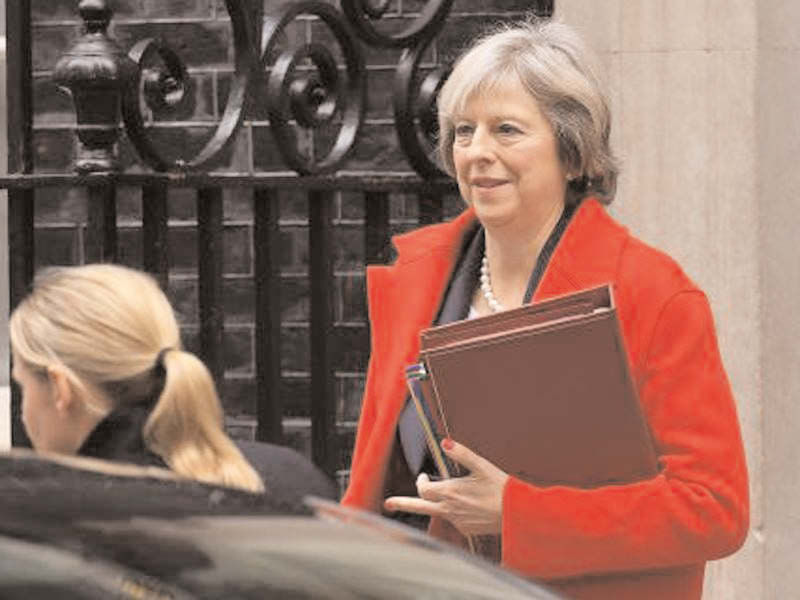
Says she would trigger formal divorce talks with European Union by March-end
LONDON (TIP): British Parliament overwhelmingly supported a Bill, February 9, empowering Prime Minister Theresa May to start crucial negotiations by March 31 on leaving the European Union, bringing Brexit a step closer. May said she would trigger formal divorce talks by March-end.
The draft legislation of the European Union (Notification of Withdrawal) Bill was approved by 494 votes to 122 by the House of Commons after its final debate.
The Bill allows Prime Minister May to invoke Article 50 of the Lisbon Treaty to begin a two-year period of negotiations for the UK’s new deal as a non-member of the European Union (EU) by 2019.
Now that the Bill had passed the Commons, it will be debated in the House of Lords after it returns from recess on February 20, where it is expected to be given the final nod.
Earlier, the Commons debated the last set of amendments to the Bill, including on key principles for the negotiation process, before the Bill went on to its third and final reading for the vote.
Opposition Labour leader Jeremy Corbyn had instructed his MPs to vote in favor of the Bill whether any amendments are made or not. However, he faced a second round of rebellion after over 49 MPs had defied the whip at the last vote earlier this month.
Some 52 Labour MPs rebelled in vote today, including Shadow business secretary Clive Lewis who resigned shortly beforehand. Shadow home secretary Diane Abbott, who missed last week’s initial vote on the Bill, backed it this time. She told the BBC she had “a lot of misgivings about the idea of a Tory Brexit” and predicted the UK would “come to regret it”, but added: “I’m a loyal member of the shadow cabinet and I’m loyal to Jeremy Corbyn.”
May herself faced a rebellion of her MPs, but she managed to minimize the Tory rebellion by promising a Commons vote on Brexit before it is finalized.
Britain sees no need for a second Scottish independence referendum and the devolved Scottish government should focus on improving the economy and tacking domestic issues rather than flirting with secession, Defence Secretary Michael Fallon said.
An opinion poll published on Wednesday, February 8, showed support for Scottish independence rose after Prime Minister Theresa May proposed making a clean break with the European Union, stoking speculation that Scotland could demand another secession vote.





Be the first to comment